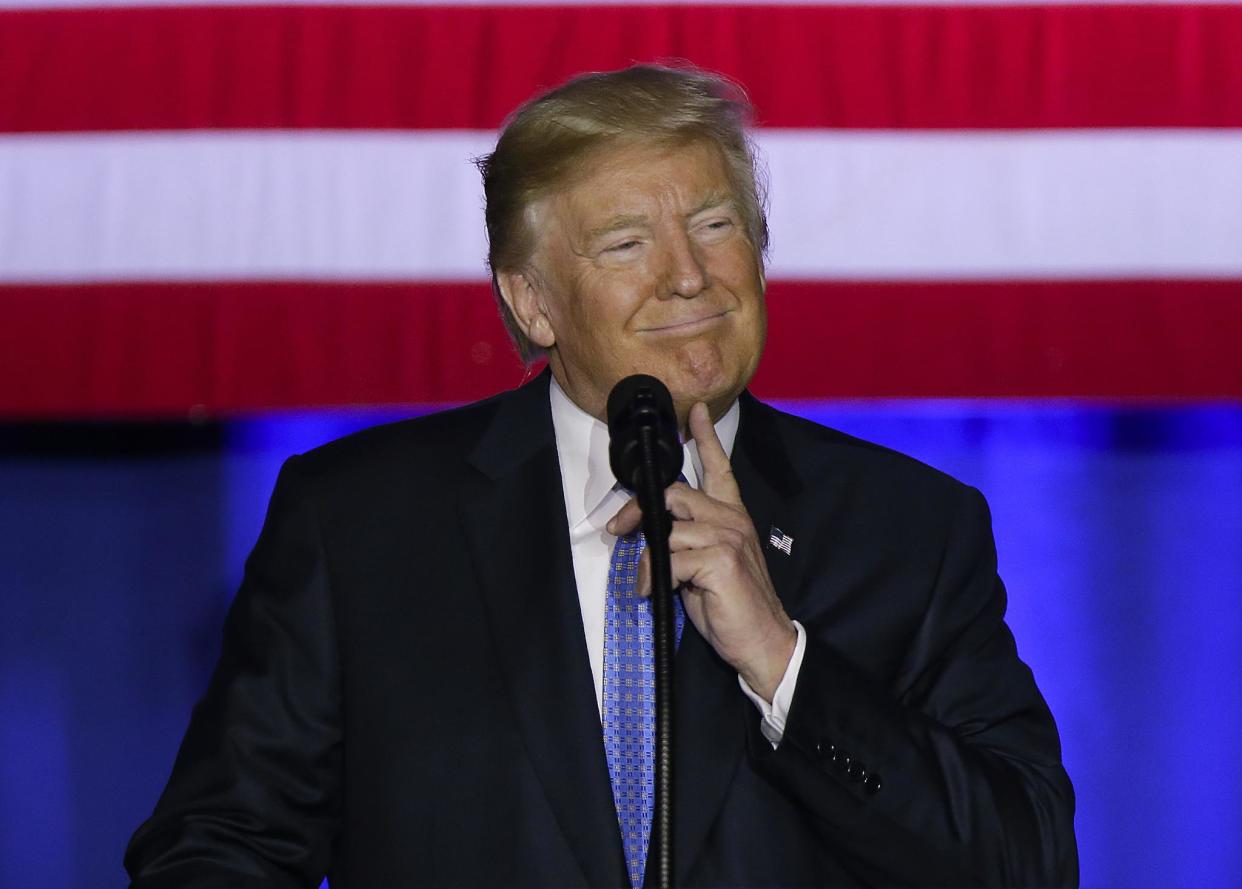Donald Trump falsely claims his plans for massive tax cuts won't benefit him

Donald Trump’s tax plan will likely benefit the wealthy like himself – even if he says it won’t.
While the gains for the middle class are still unclear, the plan includes multiple provisions that appear to be beneficial for Mr Trump’s personal income, his businesses, and his children.
For example, the President wants to end the estate tax, which only affects a few thousand uber-wealthy families each year – individual estates larger than $5.49m, and $11m for couples.
The estate tax is currently 40 per cent. Mr Trump is reportedly worth $3.5bn, according to Forbes. If his children inherit that amount, they would save $1.4bn in taxes.
The President also hopes to eliminate the alternative minimum tax, which is designed to prevent tax avoidance.
The plan’s precise effects on Mr Trump cannot be calculated since he refuses to release his tax returns. However, portions of returns that have become public show the alternative minimum tax in 2005 required him to pay $31m in additional taxes.
The plan also includes other advantages for the wealthy, including a lower top rate on income tax.
For individuals, the plan reduces the number of tax brackets from seven rates into three: 12 per cent, 25 per cent and 35 per cent. The bottom rate would go up from 10 per cent, while the top would go down from 39.6 per cent.
Republicans suggest they may add a higher income-tax rate later to ensure the plan “does not shift the tax burden from high-income to lower- and middle-income taxpayers.” However, some have expressed scepticism that a change to the top rate will make up for the other breaks for higher earners.
The President has declared repeatedly that the plan will lower taxes paid by middle-class families, but Republicans have still not provided enough information to evaluate this assertion. While some families may receive tax cuts, others could end up paying more to the government.
The tax proposal gets rid of the personal exemption that filers currently claim for each taxpayer and dependent. It also appears to eliminate most deductions, while specifically keeping those on mortgage interest and charitable donations.
The plan bears resemblance to the large tax cuts that President Ronald Reagan, in 1981, and President George W Bush, in 2001, passed in the first year of their administrations. Like his Republican predecessors, Mr Trump has said cutting taxes will expand economic growth.
However, Mr Reagan and Mr Bush cut taxes when America was experiencing economic recessions, and Mr Trump is proposing to reduce taxes during one of the longest economic expansions in US history.
It is unclear how much faster the economy can grow in a sustainable manner. The Federal Reserve has cautioned that it will attempt to offset any economic stimulus by increasing interest rates.

